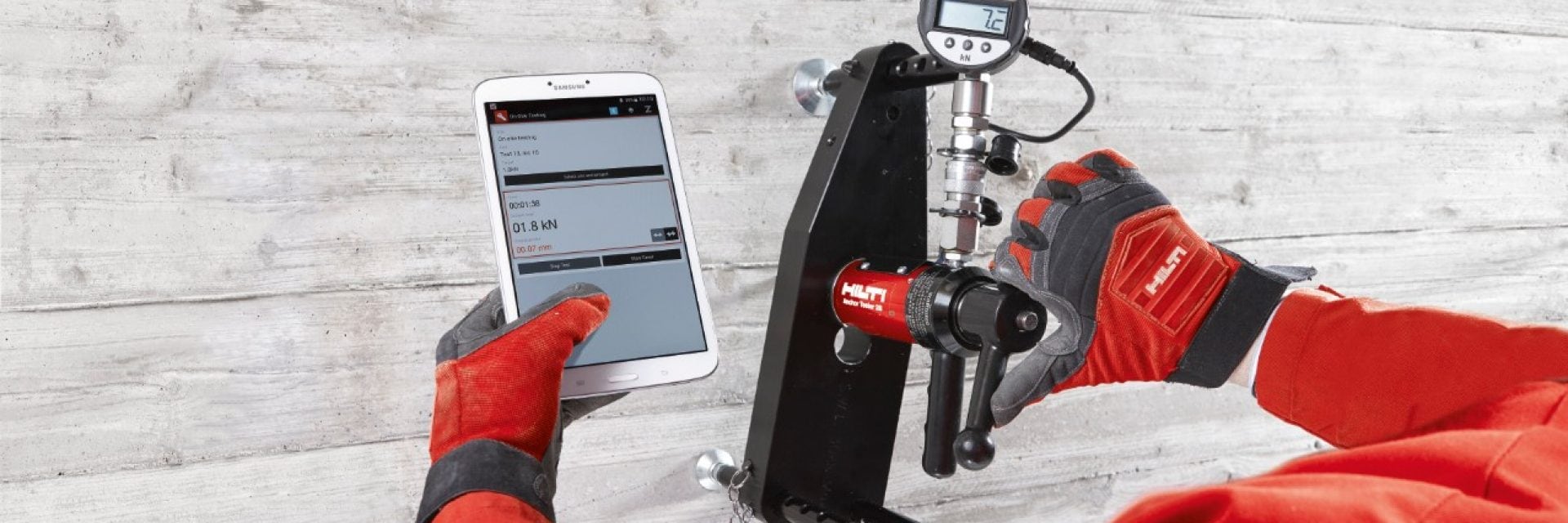ONSITE TESTING FOR REBAR AND ANCHORS
Hilti's onsite tests for post-installed rebar and fastenings


Onsite testing during design phase
During the design phase – determine the resistance of a base material and which fastening system to use.

Onsite testing after installation
After installing anchor systems – determine quality and safety. This can be required by building owners or to ensure compliance to local guidelines.
WHAT DO I GET AFTER ONSITE TESTING

